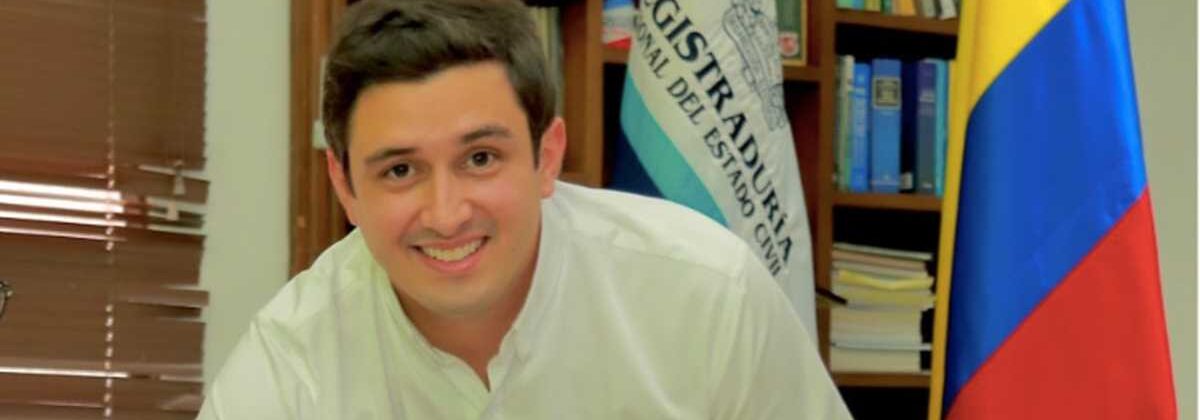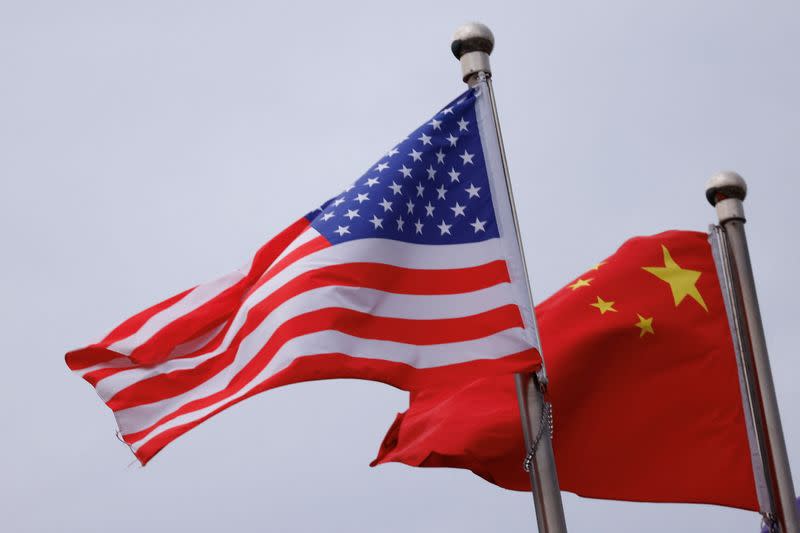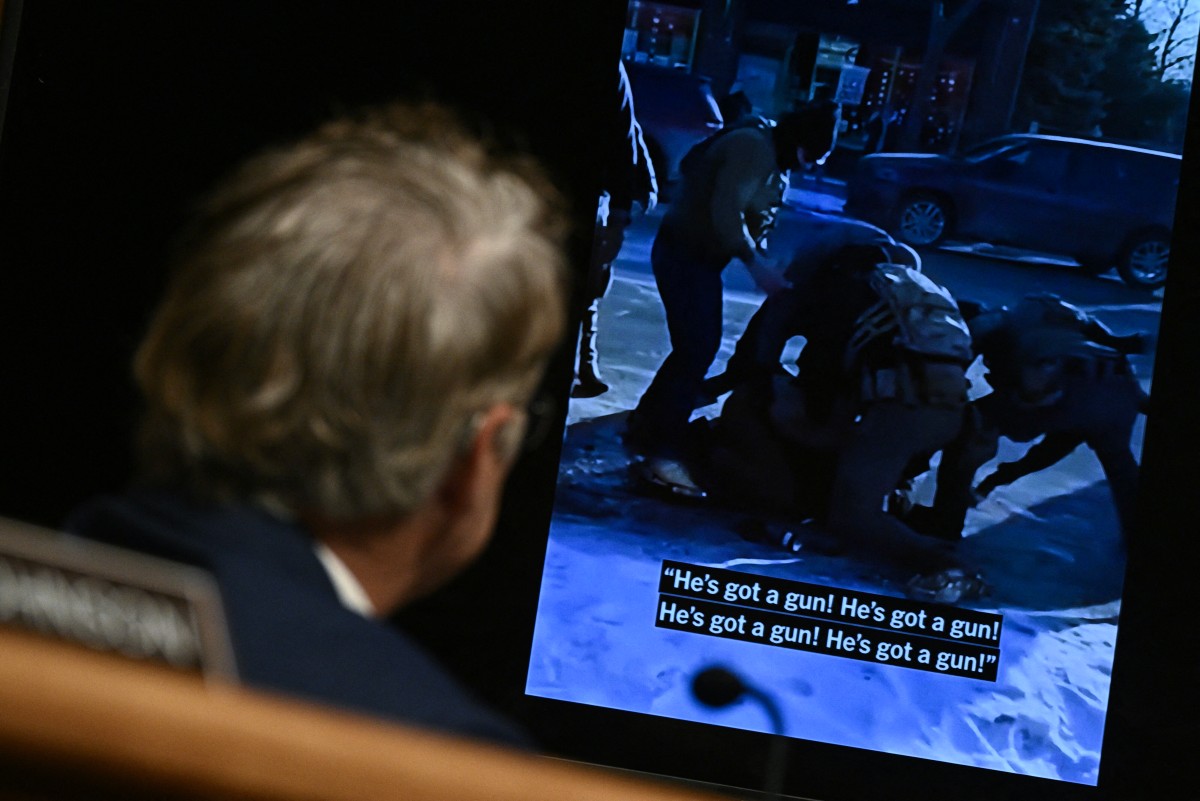International
Son of Colombian paramilitary chief elected to special seat for victims of conflict

AFP
Colombian officials said Monday that the son of a notorious paramilitary leader has won an election to be a special member of Congress representing victims of the conflict.
On Sunday, Columbia held elections for both the Senate and its lower House of Representatives in which the left finished ahead.
For the first time, victims of the conflict between the government and the ex-guerilla FARC group — who signed a peace deal in 2016 — will have their own representatives in Congress.
For the next two legislatures, until 2030, 16 seats will be reserved specifically for victims in the regions most impacted by the conflict.
Those regions in northern Colombia have seen a rise in violence recently, as armed groups battle for control of prized narcotrafficking corridors.
Jorge Tovar, the son of the former paramilitary chief known as “Jorge 40,” has been elected to one of those seats.
The lawyer-by-training celebrated his victory on Twitter: “The moment has come to change history.”
His father was the leader of a right-wing paramilitary group known as the Northern Block, which wreaked havoc in the 1990s in its battle against left-wing guerillas.
He returned to Bogota in 2020 after serving a prison sentence in the United States for drug trafficking.
While currently living freely, he still faces dozens of lawsuits for massacres and forced displacement.
His son’s election drew sharp criticism, especially from victims’ organizations such as the Movement of Victims of State-Sponsored Crimes, which alleged “corruption and paramilitarism have taken over” the region, and echoed allegations of vote-buying.
“The son of Jorge 40 is now the representative of the victims left by his father,” said leftist Senator Gustavo Bolivar.
Sunday’s legislative elections also marked a new setback for the Comunes (Commons) party, which was formed by the former Marxist guerrilla group FARC.
The 2016 peace agreement guarantees the party 10 seats until 2026 regardless of its vote total, but it only received 50,000 votes on Sunday, 35,000 fewer than in 2018.
“The numbers in the legislative elections were not what we expected. As a party, we will make the corresponding analyses,” said the far-left party.
International
Florida judge sets 2027 trial in Trump’s $10 billion lawsuit against BBC

A federal judge in Florida has scheduled February 2027 for the trial in the lawsuit filed by U.S. President Donald Trump against the BBC, in which he is seeking $10 billion in damages for defamation.
Trump accuses the British broadcaster of airing a misleading edit of a speech he delivered on January 6, 2021, which, he says, made it appear that he explicitly urged his supporters to attack the U.S. Capitol in Washington.
The president filed the suit in December in federal court in Florida, alleging defamation and violations of a law governing business practices when the program was broadcast ahead of the 2024 election.
Trump is seeking $5 billion in damages for each of the two claims.
Lawyers for the BBC unsuccessfully asked the court to dismiss the case, arguing that Trump had not suffered a “legally recognizable harm,” since the investigative program Panorama, which included the edited footage, aired outside the United States.
International
Head-of-state diplomacy key to guiding China–U.S. ties, Beijing says

Head-of-state diplomacy plays an irreplaceable strategic guiding role in China–United States relations, Chinese Foreign Ministry spokesperson Lin Jian said on Thursday during a regular press briefing, when asked about high-level exchanges between the two sides.
Lin added that in a recent phone call, U.S. President Donald Trump once again expressed his intention to visit China in April, while Chinese President Xi Jinping reiterated his invitation.
Both sides remain in communication regarding the matter, the spokesperson said.
Lin noted that the essence of China–U.S. economic and trade ties lies in mutual benefit and win-win outcomes.
“Both parties should work together to implement the important consensus reached by the two heads of state, injecting greater certainty and stability into China–U.S. economic and trade cooperation, as well as into the global economy,” he said.
International
Trump administration to end special immigration operation in Minnesota

The administration of Donald Trump is bringing to a close its special operation targeting illegal immigration in the northern state of Minnesota, border czar Tom Homan announced Thursday, following weeks of unrest and the fatal shootings of two activists by federal agents.
Thousands of federal officers had been deployed to Minnesota in December to carry out large-scale raids against undocumented immigrants.
The operations triggered strong reactions from residents and advocacy groups, leading to daily confrontations and the deaths of two people who were shot by federal agents.
“I proposed, and President Trump agreed, that this special operation should end in Minnesota,” Homan said during a press conference in the state capital, Minneapolis.
“A significant drawdown began this week and will continue into next week,” he added.
Homan indicated that similar enforcement efforts could be launched in other cities.
“Next week we will redeploy the agents currently here back to their home stations or to other parts of the country where they are needed. But we will continue to enforce immigration laws,” he said.
-

 Central America4 days ago
Central America4 days agoGuatemala isolates Barrio 18 leader after attacks that killed 11 police
-

 International2 days ago
International2 days agoU.S. Health Department says CDC grants no longer match agency priorities
-

 International1 day ago
International1 day agoOver 50 Civil Groups Urge House to Impeach DHS Secretary Kristi Noem
-

 International2 days ago
International2 days agoICE Arrests Reach 379,000 Under Trump, Testimony Shows Amid Minnesota Shootings
-

 Central America1 day ago
Central America1 day agoGuatemala to Phase Out Longstanding Medical Cooperation Agreement with Cuba
-

 International2 days ago
International2 days agoDespite homicide drop, overall deadly violence remains high in Mexico: study
-

 International2 days ago
International2 days agoSheinbaum Urges Mexico to ‘Jealously’ Guard Sovereignty at Air Force Anniversary
-

 International2 days ago
International2 days agoMEPs Approve Plan That Could Fast-Track Rejection of Some Asylum Claims
-

 International2 days ago
International2 days agoJet Fuel Crisis Hits Cuba: Flights Disrupted, Air Canada Cancels Services
-

 International1 day ago
International1 day agoNew York’s New Archbishop Names Óscar Romero as His Favorite Saint
-

 International2 days ago
International2 days agoMexico Rises Slightly to 141st in Global Corruption Perceptions Index 2025
-

 International6 hours ago
International6 hours agoHead-of-state diplomacy key to guiding China–U.S. ties, Beijing says
-

 International6 hours ago
International6 hours agoTrump administration to end special immigration operation in Minnesota
-

 International6 hours ago
International6 hours agoFlorida judge sets 2027 trial in Trump’s $10 billion lawsuit against BBC
-

 International1 day ago
International1 day agoExclusive Tucson Neighborhood Shaken by Disappearance of Savannah Guthrie’s Mother
-

 International2 days ago
International2 days agoChile Unveils Latam-GPT to Give Latin America Its Own AI Model


























